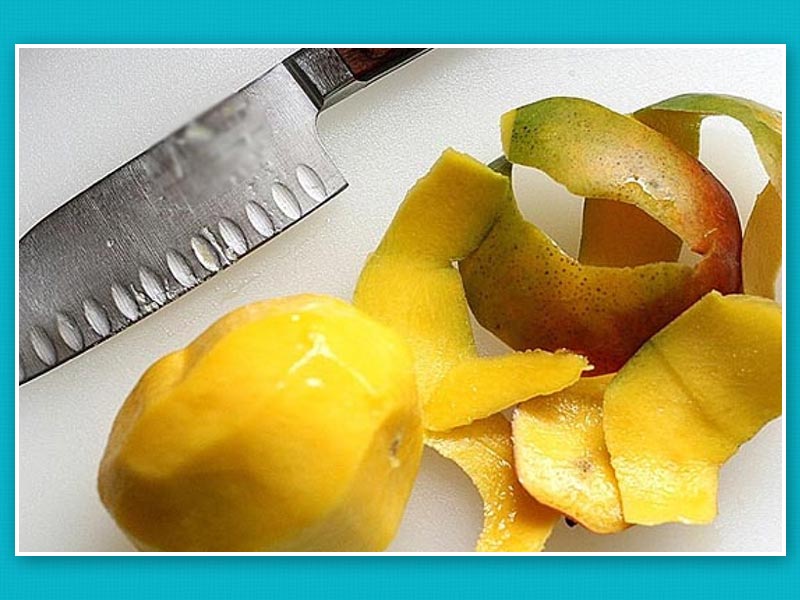
There is no dearth of mango lovers on this planet because of the tropical fruit's unmatched taste and health benefits. It's a powerhouse of many nutrients from Vitamin A, C, K, folate, magnesium, choline, potassium among others. While people generally enjoy eating the pulp of the fruit, its peel is normally discarded. However, according to several studies and health experts, even the peel of this world-popular fruit is loaded with plant compounds, fiber and anti-oxidants that may prevent against many diseases and even slow down ageing. Now isn't that wonderful?
Table of Content:-
But Can We Eat Mango Peel?
While we do not think twice before indulging in the sweet, juicy fruit, many people may feel its peels are not edible. They do not exactly leave a pleasant taste in the mouth, but you can add them to your food after cooking, or processing them.
So What Are The Health Benefits of Mango Peel
Helps Prevent Diseases
While the pulp of the mango itself helps to fight various diseases, its peel is even more beneficial in fighting certain diseases. The vitamins, carotenoid, polyphenols reduces the risk of heart diseases and cancers. With loads of antioxidants and plant compounds, mango peels is found to be effective in the following diseases:
Cancer: The skin of the mango has more anti-oxidants and anti-cancer properties than its pulp. Mango peels are known to be beneficial in many kinds of cancer like lung, colon, breast, brain, and spinal cord. The plant compounds like triterpenes and triterpenoids also have anti-cancer properties and also helpful in Diabetes.
Heart Diseases: Mango peels are rich in phytonutrients found in plants. It is good for your heart health and prevents against cardiac issues. The high fibre content in the mango peel also helps keep the heart issues at bay, as according to a Harvard study, those who ate fibre-rich diet have 40% lower risk of heart disease.

Also Read: Do You Throw Away Kernels After Eating Mangoes? Know Surprising Mango Kernel Benefits
Aids Weight Loss
Eating mango peels can help control blood sugar level and reduce weight as it has leptin which is a hormone that regulates energy consumption and appetite, says Oklahoma State University study published in 2008.
According to a research by University of Queensland School of Pharmacy, mango peels of two mango varieties Nam Doc Mai and Irvwin reduced formation of fat cells in the body.
Improves Digestion, Immunity
Mango skins are packed with fibre and are considered good for digestive health. They also have compounds in them that help regulate hunger. Mango peels are abundant in vitamin A and C and high on anti-oxidants which boosts body's immunity.

Slows Down Ageing
The powerful anti-oxidants in mango is known to slow down the ageing process. Also a team of researchers in USA found that eating a certain variety if mango can actually help fighting wrinkles in women and make their skin glow.
Concerns Around Eating Mango Peel
May Cause Allergic Reaction
Mango peels have a compound called urushiol which is normally found in poison ivy and poison oak which could trigger an allergic reaction and manifest in a skin rash. Some people may also face breathing issues as an adverse reaction from consuming urushiol.
Also Read: Note These Benefits Of Mango Seed Oil and Why It Is A Great Remedy For Overall Health
May Have Pesticides Which Could Be Harmful For Your Health
If one wants to eat mango peel for its health benefits mentioned above, it should be made sure the fruit doesn't have any exposure to pesticides. It would be best if it's grown as an organic fruit because the pesticides in fruit can lead to certain cancers, endocrine system and reproductive troubles.
Read More Articles On Healthy Diet
Also watch this video
How we keep this article up to date:
We work with experts and keep a close eye on the latest in health and wellness. Whenever there is a new research or helpful information, we update our articles with accurate and useful advice.
Current Version
